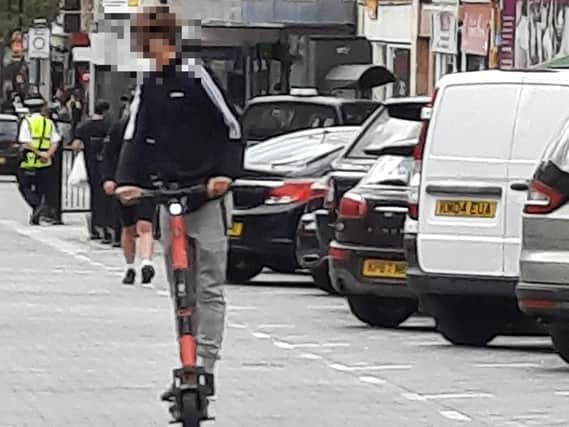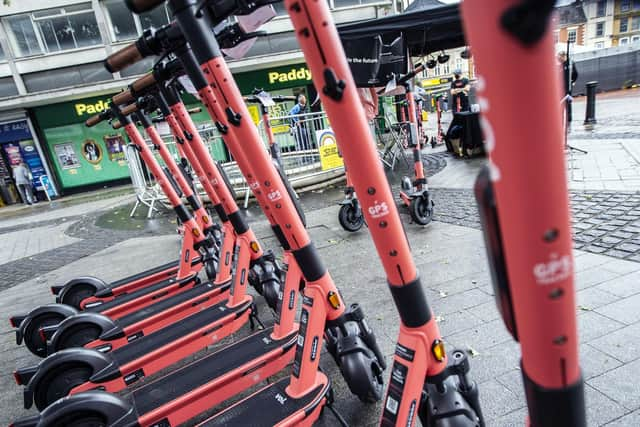Police make e-scooter laws clear in Northampton after first prosecution


A 12-month electric scooter trial has been met with mostly criticism since it was launched in Northampton on September 3, in a bid to reduce carbon emissions.
An 18-year-old girl appeared in court on September 10 charged with driving without a valid licence, failing to stop after an accident, driving without due care and attention, and driving without third party insurance.
Advertisement
Hide AdAdvertisement
Hide AdTo start the trial, 300 e-scooters, which are paid for by the minute via an app, have been dotted around the town at places such as the train station, bus station and the university campus, in bid to encourage bus, taxi or car users to jump on a scooter instead.


But residents in their droves have complained on social media about them being dumped, and ridden on pavements with claims children misusing them.
Yesterday, county council chiefs had no plans to suspend trials of electric scooters in Northampton despite Midlands neighbours Coventry halted its scheme after just five days.
Electric scooters are classified as Personal Light Electric Vehicles, which mean they are treated as motor vehicles and are subject to all the same legal requirements such as insurance and licensing.
Advertisement
Hide AdAdvertisement
Hide AdHowever, this has appeared to have caused some confusion, resulting in privately-owned electric scooters being driven illegally on roads and pavements, and hired vehicles being misused.
Offences relating to the standard of driving, using a mobile phone while riding or speeding also apply and police have the power to seize electric scooters if offences have been committed. It is not a legal requirement to wear a helmet, however users are encouraged to do so.
Superintendent Adam Ward, of the force’s operations team, said: “We’ve received a few inquiries about the law surrounding electric scooters following the launch of the 12-month trial in Northampton.
“Together with our partners from the Northamptonshire Safer Roads Alliance, we will be working in partnership with VOI, the company which operates the electric scooters, to help educate members of the public on both the safety and legality of hiring the scooters.
Advertisement
Hide AdAdvertisement
Hide Ad“As a partnership, we want to ensure those using the scooters as part of this trial do not inadvertently put their own safety potentially at risk, or that of other road users. Or use them in such a way which would be committing a criminal offence.
“It is important to remember that although the Government has introduced some exemptions, the legislation hasn’t changed and an electric scooter is still classified as a motor vehicle and, as such, the rider is subject to the same requirements as driving a car, and having a driving licence and insurance.
“Hired scooters are permitted on the roads, whereas privately-owned scooters are not, however it is still illegal for all electric scooters to be ridden on pavements, in parks or in other public areas.
“Until the law is changed, individuals could face a fine and penalty points on their licence or even the loss of their licence, and the scooter could be impounded if being used in a public place.
“Likewise, if anyone is caught riding an electric scooter dangerously or while under the influence of drink or drugs then you could be convicted of offences which might lead to a prison sentence.”